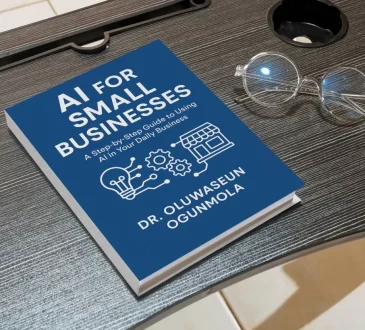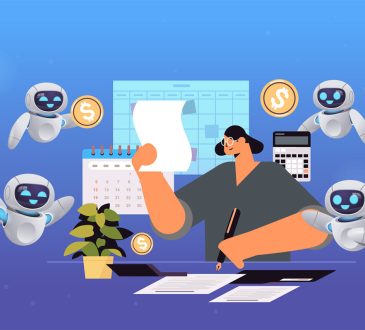Salesforce AI Reduces Support Load by 5% — But the Breakthrough Is Teaching the Bots to Say ‘I’m Sorry’

Via AI Latest Byte News Desk | July 2025
A Major Milestone in AI Customer Support
Salesforce, the global leader in CRM software, has hit a major AI milestone — handling more than 1 million AI-powered agent conversations through its customer help center.
But it’s not just the sheer size of the operation that’s impressive — though that in itself is very impressive. The company made an unexpected observation: the most important innovation was not necessarily efficiency or automation, but rather training AI agents to be more human — to say, “I’m sorry.”
A Modest But Meaningful Efficiency Gain
The effort has cut Salesforce’s total customer service load by a small but significant 5%. However, executives say the greater achievement lies in crafting bots that respond with understanding, context, and tone — a challenge that proved tougher than automating workflows or delivering pre-set responses.
1-Million-Convo Milestone: Why It’s a Big Deal
Exceeding 1 million AI-driven customer interactions is more than just a number — it represents a proving ground for enterprise-scale AI deployment in real-world, high-stakes scenarios.
“At this scale, any little bit better that we make the user experience can have snowball effects on overall efficiency,”
— Clara Shih, CEO of Salesforce AI
She adds, “Metrics such as time saved or tickets resolved don’t tell the whole story. When you meet a customer, how they feel counts as much as what’s said.”
Salesforce’s success reflects the evolving storyline in enterprise AI: scale and automation are the basics — the real challenge is making interactions feel natural, casual, and empowering.
The 5% Efficiency Gain — A Floor, Not a Ceiling
A 5% reduction in human agent load might seem modest at first. But with millions of support inquiries annually, even small gains equal thousands of hours saved and costs reduced.
Salesforce’s AI agents tackle everything from:
- Password resets
- Account unlocks
- Complex diagnostic support
These aren’t simple scripted bots — they’re powered by Salesforce’s Einstein AI, trained on:
- Large Language Models (LLMs)
- Customer behavior data
- Real-time feedback loops
According to Salesforce’s internal metrics:
- 25% of all incoming queries were resolved without human intervention
- 80% of those scored high in customer satisfaction — on par or better than many call centers
The Emotional Intelligence Gap
Despite their technical prowess, early AI versions lacked emotional intelligence. They delivered information efficiently but came across as cold or indifferent, especially when customers were upset.
“A lot of times people are coming to support when something has gone slightly awry,” said Shih.
“At those moments, tone is even more important than technical accuracy.”
‘Apology Modeling’: Teaching Bots Empathy
Salesforce engineers began experimenting with what they dubbed “apology modeling” — training bots to detect frustration, urgency, or disappointment, not just the request.
Success came when bots were trained to express empathy in realistic ways, including variations of a phrase with deep emotional weight: “I’m sorry.”
But teaching AI to apologize isn’t simple. It involved:
- Ensuring the bot’s apology didn’t sound robotic or insincere
- Avoiding apologies for issues outside the bot’s control
- Varying phrases to prevent repetition, e.g.,
- “I understand how frustrating that must be.”
- “I apologize for the inconvenience.”
Empathy That Drives Satisfaction
Using reinforcement learning and sentiment analysis, Salesforce trained its AI on thousands of annotated conversations to understand which apology styles produced better outcomes.
The result:
A 12% boost in customer satisfaction scores on interactions with well-timed empathetic responses.
“It’s not just about knowledge and logic anymore,” said Shih.
“It’s a question of tone, timing, and trust.”
Enterprise Implications: AI With Human Sensations
Salesforce’s achievement is sending a powerful signal to other industries: the future of AI support is not just automation — it’s human-like empathy at scale.
Industries like:
- Healthcare
- Finance
- Retail
…are closely watching. In these fields, consumer trust is everything, and bots that can mirror human warmth and understanding could soon be a competitive advantage.
Salesforce is now integrating this empathy layer into the Einstein 1 platform, enabling clients in telecommunications, travel, and other service-heavy sectors to deploy emotionally intelligent bots of their own.
Ethical and Operational Cautions
Despite the success, Salesforce acknowledges key limitations:
- AI empathy is still simulated
Companies must be transparent when users are talking to a bot.
Over-humanizing AI may backfire if users feel misled or manipulated. - Human agents are still essential
A 5% gain is meaningful, but not a replacement for human handling of complex or sensitive issues.
The goal is augmentation, not elimination, of human roles. - Privacy matters
Training emotionally aware bots requires access to vast behavioral and linguistic data, which must be carefully managed to protect user trust.
Next Steps: A Recipe for Ethical AI Support
Salesforce’s AI milestone offers a blueprint for responsible AI scale-up. Here are the key lessons:
✅ It’s not the scale — it’s the tone.
AI support succeeds only when customers feel heard and valued.
✅ Small touches have big impact.
A simple phrase like “I’m sorry”, when well-timed, can dramatically raise satisfaction.
✅ Empathy must be intentional.
Emotional intelligence in AI requires deliberate training, testing, and ethical safeguards.
Conclusion: AI With a Human Heart
As AI continues to transform customer support, Salesforce’s experience is a technical success story — but also a human one.
The company’s mission isn’t just to save time — it’s to restore what many feared AI would erase:
Feeling, empathy, and the humane touch.




